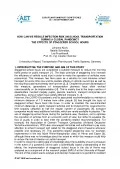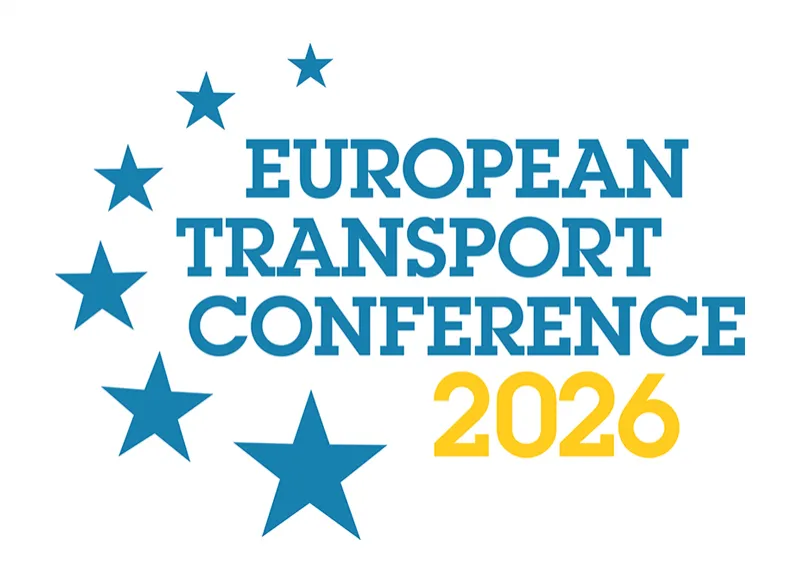-
Past ETC Papers

Browse, search and view papers from the past AET Conferences.
-
Members' Area

AET promotes networking and exchange of ideas, information and opportunities amongst members.
Conference Papers 2024
Antwerp, Belgium
ETC Conference Papers 2024
How can we reduce the Infection Risk in School Transportation during a Global Pandemic? Effects of staggered School Hours
Seminar
Day 1 (18 Sep 2024), Session 2, Operations management, 14:00 - 15:30
Status
Accepted, documents submitted
Submitted by / Abstract owner
Johanna Koch
Authors
Johanna Koch, University of Kassel (presenter)
Natalie Schneider, University of Kassel
Lea Fouckhardt, University of Kassel
Prof. Dr. Carsten Sommer, University of Kassel
Short abstract
We modelled the demand for morning school transportation in order to investigate whether introducing staggered school hours during the pandemic could help to reduce the risk of infection in vehicles of public transportation.
Abstract
Usually, most German schools start at around the same time, which means that many buses as well as drivers are needed to cope with the peak in demand in the morning, which is also linked to high costs. The measure of staggering school hours has long been seen as a possible solution to the cost-intensive school transport in the public transportation sector, meaning that schools start at different times in order to achieve a more balanced demand (FGSV & VDV, 2012).However, its implementation often fails in practice due to the different interests of the stakeholders involved (FGSV & VDV, 2012) (Mobilotsin 2021).
With the onset of the COVID-19 pandemic, the issue of staggered timetabling gained renewed relevance in Germany, while the goal was no longer to achieve a more balanced demand in order to cut costs but in order to reduce the infection risk due to less contacts in less crowded vehicles (#BesserWeiter 2021). Without having any data-based knowledge about the effectiveness of this measure, staggered school times were implemented in the city of Herne (Germany) in November 2020.
In order to close the gap of knowledge, the implementation was analysed as part of the research project EMILIA at the University of Kassel, having a closer look at vehicle capacity levels, infection risk, and costs.
To be able to evaluate these impact variables (see above), an allocation model was developed. The model can map the distribution of student demand with the help of various input variables (e.g. vehicle capacities, starting times of the schools, and data of the timetable) on the basis of a multi-stage routing procedure. The results of the model can be used directly to assess the impact on occupancy levels and costs. To assess the impact on the infection risk we used an infection model which was developed as part of the project (Fouckhardt et al., manuscript in preparation)
By modelling the impact variables, we concluded that high occupancy levels of the buses and the associated risk of infection could be reduced by introducing staggered school hours without increasing costs. This showed that staggering school times is an important measure for a pandemic-resistant local public transport, as the risk of infection can be reduced with existing resources.
In our article, we would like to take a closer look at the modelling methodology as well as the results. Also, we would like to use it as a chance to draw (internationally) attention to the issue of staggered school hours. The introduction of such a measure can also be useful outside of a pandemic, as reduced vehicle occupancy levels have a positive effect on passenger comfort and can be achieved without incurring additional costs. However, particularly in view of the problem of the shortage of drivers and tight financial budgets of many public authorities, staggered school hours could be a possible solution and should be discussed in this regard.
(All sources are available on request)
BACKGROUND INFORMATION
The research project EMILIA is funded by Bundesministerium für Digitales und Verkehr (BMDV) [Federal Ministry for Digital and Transport] for 3.5 years with 1.26 million euros. The project is ending in summer of 2024. Our project is managed by Bundesamt für Logistik and Mobilität (BALM) [Federal Office for Logistics and Mobility] as Project Management Agency, coordinating the formal requirements, evaluating the research progress and outcomes. For more information, please visit www.uni-kassel.de/go/emilia (only available in German).
Programme committee
Local Public Transport
Topic
Transport planning analysis and models
Documents:

Association For
European Transport
Forester House
Doctors Lane
Henley-in-Arden
Warwickshire, UK
B95 5AW
+44 (0) 15 64 793552
VAT number: 710 1866 64
Conference Supporters & Endorsers




Legal Entity
The Association for European Transport is registered as an Association ('vereniging') with the Chamber of Commerce for Haaglanden in The Netherlands under company number 27170096.
Built on Zenario




